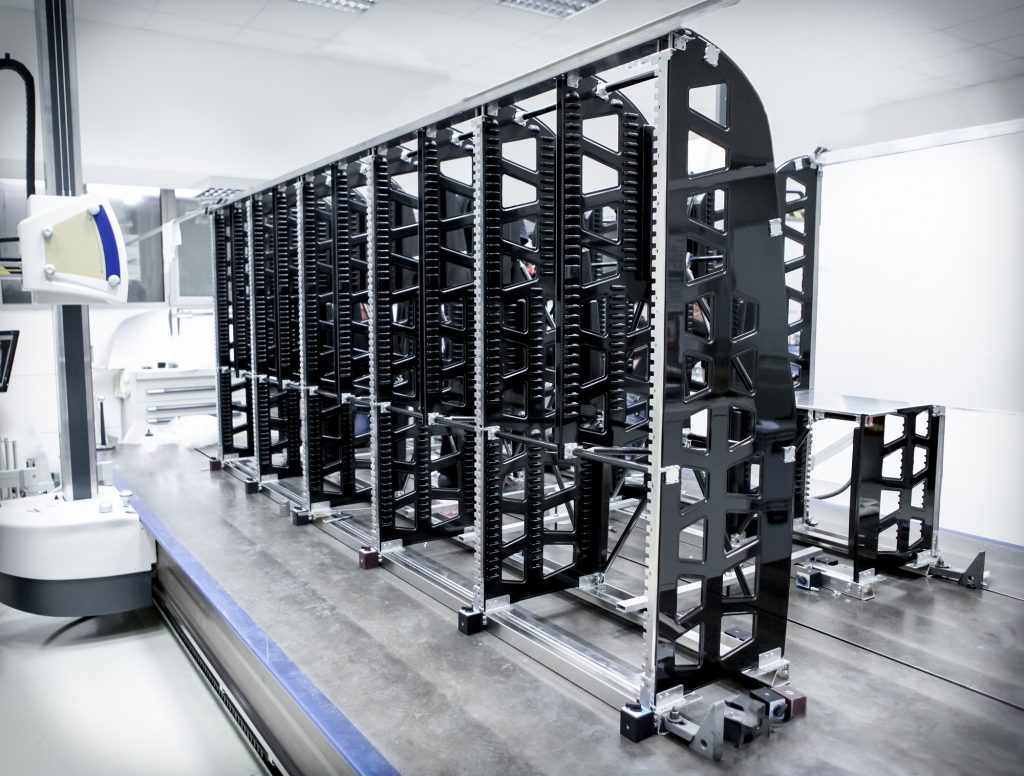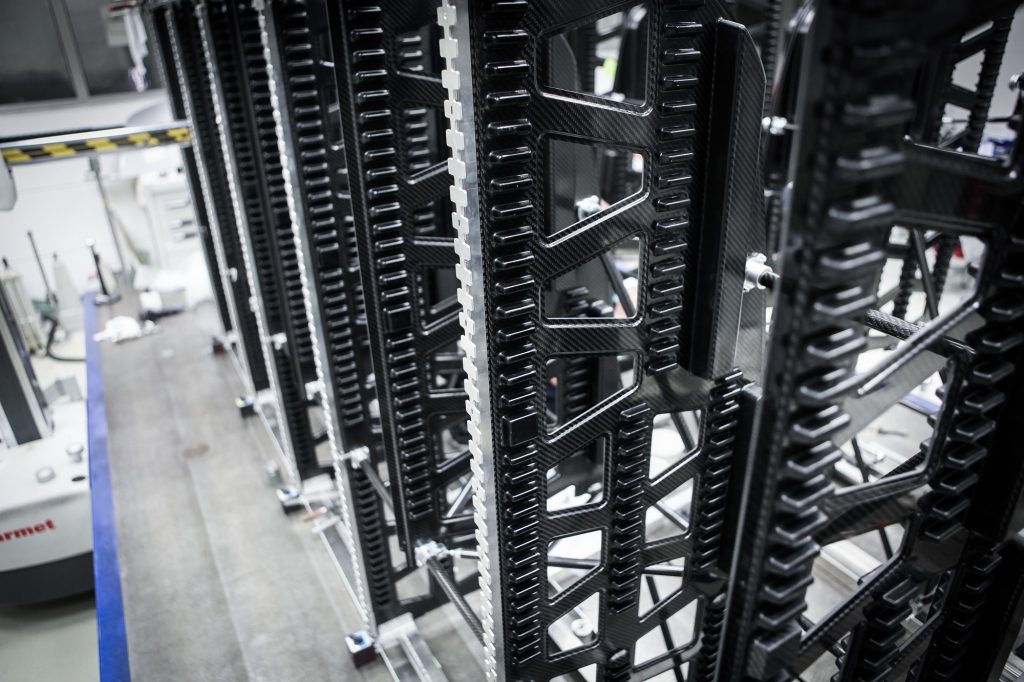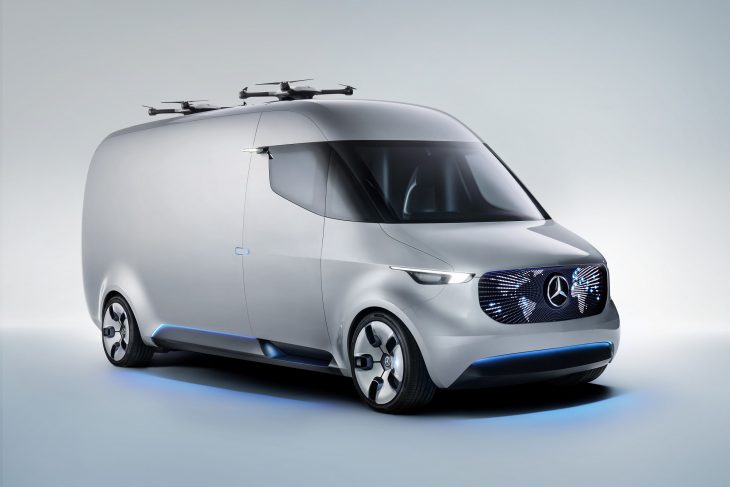Mercedes-Benz Vans presented a revolutionary transporter concept study for urban areas in 2016 with the Vision Van. The van integrates a number of innovative technologies for the final end-point deliveries of products — even using on board drones for the final stretch of the delivery. The van features lightweight carbon fiber reinforced plastic (CRP) and aluminum shelves with a bionic design that were developed by German startup CIKONI to improve the loading and unloading of transport vehicles.
This innovation was selected by the Development Agency for Lightweighting Baden-Wuerttemberg as ThinKing for February 2017. Leichtbau BW GmbH presents the ThinKing title monthly in order to innovative products and services in the Baden-Württemberg lightweighting sector.
One Shot Loading
The centerpiece of the vehicle is the intelligent cargo space management, which uses so-called one-shot loading. It provides assistance both in loading at the logistics center, as well as in making the final delivery of packages to the recipients more efficient. The CIKONI’s lightweight shelf system is designed to be placed into the cargo area after being fully loaded. At the point of delivery, the packages are automatically removed by machines and handed over to a courier or to a delivery drone for the final delivery. This process reduces delivery time as well as the time required for the vehicle to be parked. All in all, the throughput of the vehicle can be significantly increased.
High-Tech Racks with Bionic Design
The lightweight shelves are made of an intelligent material mix of carbon fiber reinforced plastic (CRP) and aluminum using sandwich design concepts. This design guarantees high stability under hard braking conditions and sharp curves while at the same time keeping weight low. The designers cleverly took advantage of the attributes of the different materials. Weaknesses of the individual materials can be targeted and eliminated by combining different materials. Integrated support points for the load bearing elements using integrated functional surfaces minimize wear from friction and shock absorbers protect the shelves while reducing the need for additional components.

The shelves are expected to fulfill several difficult requirements. They must be designed to make the most out of the van’s cargo space while at the same time keeping weight to a minimum and maintaining stability under a load of up to 500 kg while the vehicle is in motion. The racks must also be easy to handle to meet the robust requirements of the logistics industry. Aesthetically, a new design was also requested in order to fit visually with the futuristic look of the Vision Van.
The design of the shelves was based on a bionic principle inspired by the structure of a tree. Topology optimization and computer aided optimization were used intensively to finalize the design. Using the bionic design, the shelves were then crafted out of an aluminum hybrid blend and numerically optimized by utilizing the degrees of freedom of the fiber reinforced construction. The completed structure is extremely anisotropic, integrating material only where it is needed to bear specific loads.

Thanks to the use of high-tech materials, CIKONI was able to make optimal use of the available cargo space. Both volume and weight have a direct influence on the efficiency of the system. The startup company from Stuttgart was able to use its expertise in the area of multi-material lightweight construction throughout all stages of the process from conception, numerical optimization and function validation to detailed construction, FE calculation, and the final delivery of the installation ready rack and loading system.
In order to cover all of these bases, CIKONI had to build up a wealth of know-how. Dr. Farbod Nezami, managing director of CIKONI, commented on the project noting, “We have highly specialized development engineers who supervise the entire process from conceptualization to simulation, construction, and manufacturing processes for small and largescale serial production. This know-how is coupled with creativity and clear customer focus. Our primary goal is always to spark excitement – with our customers and the customers of our customers.”
The construction of the shelves was carried out in close collaboration with established companies, such as UBC and Hermann Blechtechnik, both from the same region. The manufacturing process depends on adaptable development methods and rapid concept turnaround.

